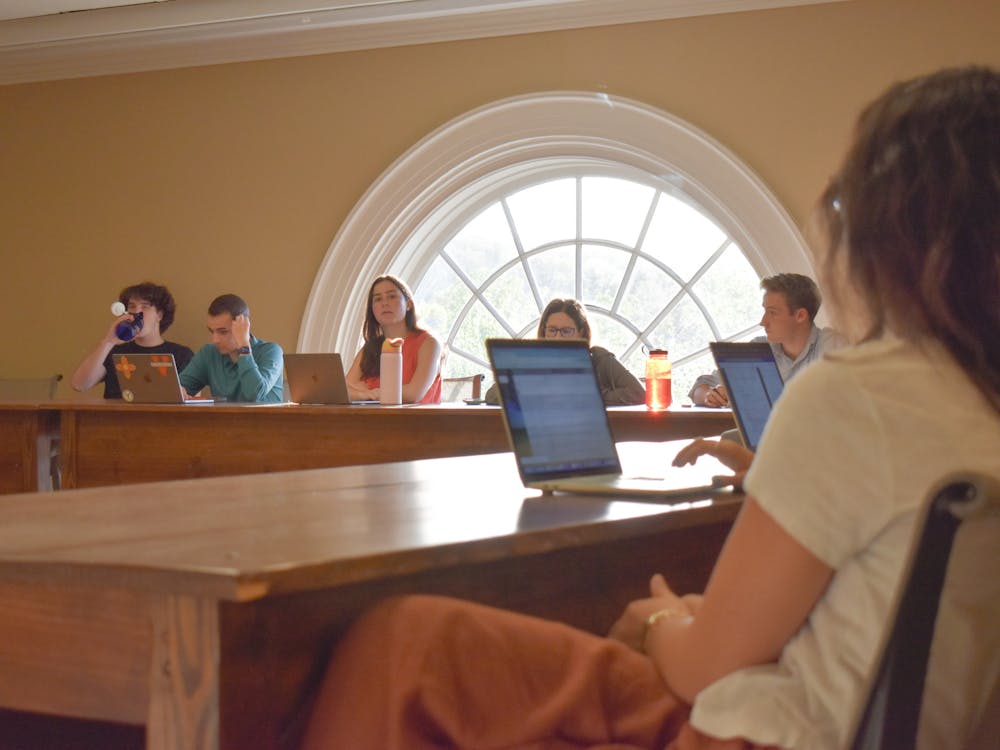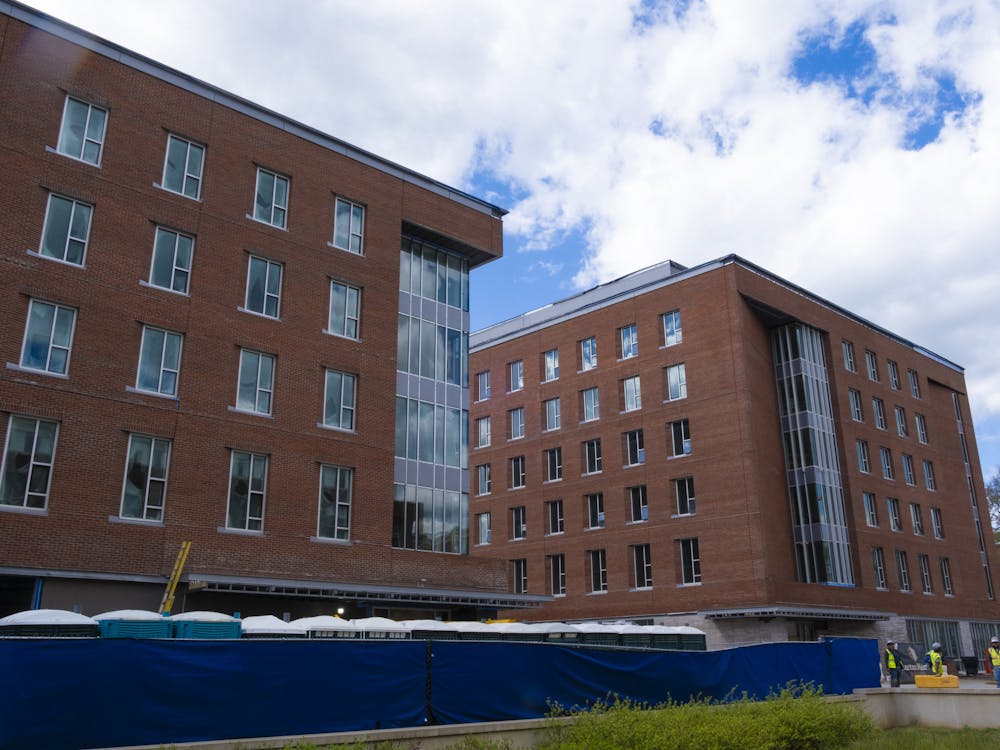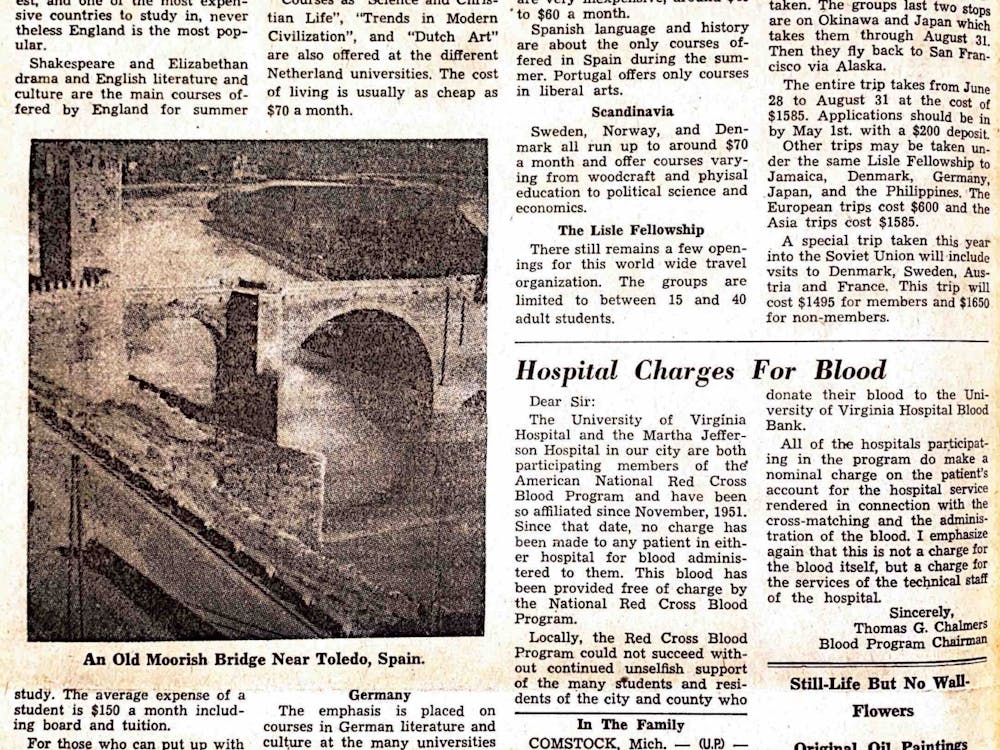The University’s Women, Gender & Sexuality Program hosted a “Teach-In” Wednesday in response to the Virginia Alcoholic Beverage Control’s March 18 arrest of third-year College student Martese Johnson and other events over the past year. Faculty members were invited to speak about how the recent events at the University relate to their own work.
Speakers included professors from a wide range of departments including English, Music, Drama, Politics, History, Architecture and the Women’s Center.
Teach-Ins — which date back to the Vietnam War — are designed are designed as a method of knowledge distribution outside of the classroom, enabling students and professors to take subjects and connect them to the current events of the time. They are also a way for students and teachers to connect on a deeper and more personal level outside a professional environment.
Second-year College student Jacqueline Akunda, who helped orchestrate the event, said, “This is a bringing together of faculty and students over the issues that have happened this year.”
The Teach-In focused strongly on recent events at the University, what students can do to evoke change and how the University can change as a whole in order to better represent minorities.
Architecture Prof. Frank Dukes said the University was founded upon the principles of discrimination, dating back to the plantation owners, and over time the University has changed. The change however, is not complete and must continue, he said.
“I recognize that I was at an institution that was founded to meet the needs of white plantation owners. That is what we were founded about, to institutionalize the system,” Dukes said. “We need to understand that that is where we have been, before we can say where we want to go.”
Women’s Center Program Director Jaronda Miller said she has provided students outside resources to improve advocacy efforts.
“Some of things I've tried to do is bring people in the community that work in advocacy to show students what it takes,” Miller said. “[I have tried to show students] how to organize and what strategic steps you take to have an issue and get results.”
English Prof. Susan Fraiman emphasized the need for communication in order to better understand multiple viewpoints.
“The problems are really structural, and they're not things that we can change overnight, and they're not only step-by-step, but there are also different strategies, and one of those strategies is talking to people,” Fraiman said.
Both the students and faculty spoke about the need for greater diversity in the University as well as a living wage for University staff, who mainly come from the Charlottesville community.
Dukes said the University admitted 147 African American students from Virginia last year from the 24,000 African American students in Virginia high schools. Fraiman and Drama Prof. Theresa Davis also discussed the issue of diversity at the University with the University’s recent ranking of 56 out of 60 in a list of diverse faculties, a below failing ranking on a student diversity ranking, and a drop from 10 percent to seven percent of African-American student populations.
“When I look at our diversity ranking, people are talking about it, but what are we doing about it?” Davis said.
One thing students focused on is how they could get involved and make a change in light of injustice and inequality. Each professor offered their own advice for students who wish to push an activist group to action and make changes.
Asst. Music Prof. Nomi Dave said students should start the conversation and have a voice in the classroom, as well as listen to opposing views in order to better understand where they come from.
“Activism involves not just the pleasure of speaking our minds but the challenge of listening to someone else and trying to imagine what it feels like for them to go into the world,” Dave said.
Fraiman addressed the “Open Letter to Faculty” written by University students, which allowed them to express their feelings after the events of the semester. She considered the extremely personal testimony powerful and emotional for the faculty to read.
“I do think that the open letter to faculty was really really powerful and its not a tool that i've never seen used before ... that kind of personal testimony is important,” Fraiman said.
Davis instructed students to use their power in order to force administrative changes.
“You have power, far more power than you know you have ... use that power, not just for change but transformation,” Davis said.
Each professor expressed deep faith in the power of the students and their ability to enact change. Many, including Assoc. Music Prof. Bonnie Gordon, said the reason they continued fighting and remained at the University was their hope and faith in the students.
“This has been a dark dark year, but the students have been amazing, and thats really the hope,” Gordon said.
Third-year College student Alesha Cooper expressed satisfaction with the event and said it opened a door of communication between faculty and students.
“Its always good to see students and faculty speak together because sometimes faculty and students their relationship is distant, so when you can see that they’re hurting too; thats a powerful thing,” Cooper said. “These things are needed more often.”




